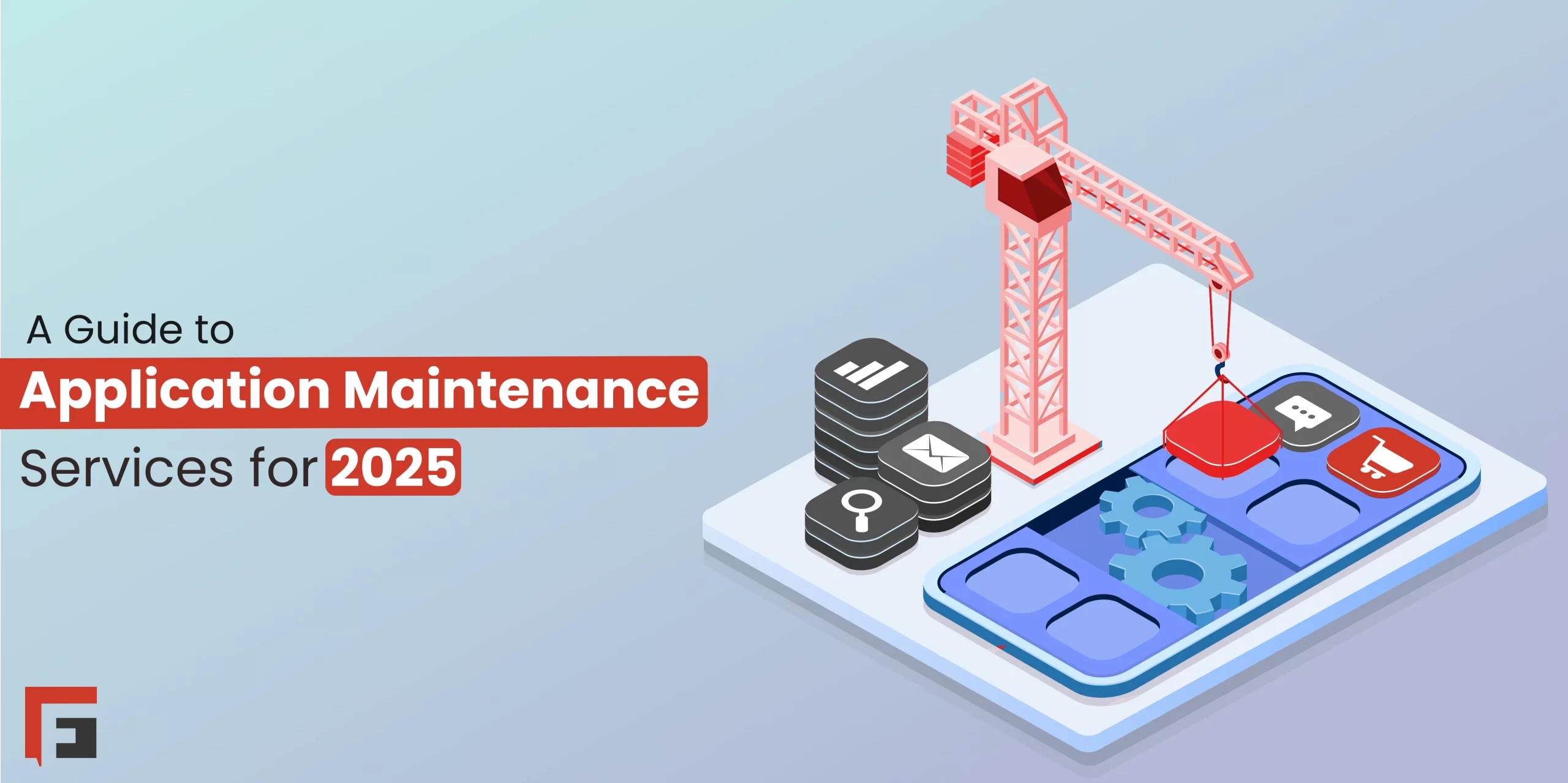
Benefits of Working with a Software Maintenance Company vs In-House
| Author: | Hagar Hadad |
|---|---|
| Last updated: | |
| Categories: | Application Maintenance |
| Reading time: | 8 mins |
Since software maintenance has become a critical function that ensures applications remain secure, reliable, and up to date, businesses are faced with a key decision: should they manage this function internally or partner with a dedicated software maintenance company?
The answer to that question depends on many factors, and it’s important to determine whether your company needs support services or not.
In this blog, we’ll highlight the benefits of working with support professionals versus keeping it in-house.
Cost Efficiency and Budget Control
One of the main reasons many companies choose to outsource their software maintenance services is cost control.
Maintaining an internal team can be costly. In addition to salaries, companies must also consider recruitment, training, employee benefits, and infrastructure expenses.
In fact, a survey by Deloitte highlighted that 57% of executives said the primary driver of outsourcing is cost reduction.
Working with a software maintenance company will result in lower operational overhead; there will be no need to allocate budget for full-time developers, workstations, or internal training programs.
Also, business processes will move faster as outsourcing companies use the latest tools to avoid software issues without compromising the total cost.
Companies can also opt for fixed monthly retainers, pay-as-you-go models, or support packages tailored to workload volume.
On the other hand, the problem with working in-house includes the rising costs and the hidden expenses that arise while onboarding new developers or upskilling current staff for legacy systems.
Access to a Broader Skill Set and Specialized Expertise
Software maintenance is a field that requires extreme proficiency in a wide range of technologies, including frameworks, libraries, databases, and legacy systems.
It also demands up-to-date knowledge of security protocols, performance optimization, and compliance standards.
Working with a software maintenance company offers all that; maintenance services companies employ cross-functional teams with deep experience in a range of technologies.
Also, support service providers always have to stay ahead of the curve on tools, methodologies, and industry standards, which means that they will do everything they can to improve their teams.
For example, FlairsTech has a wide range of professionals who specialize in software maintenance and are available 24/7 to help you.
If you’re working with your in-house team, you’ll find that you might lack the experience needed for complex systems, mainly because these teams may not have the bandwidth to research and adopt emerging practices quickly.
Faster Response Times and Higher Availability
Software issues, including downtime, slow load times, or unpatched vulnerabilities, can greatly harm your business and require a rapid response to avoid customer dissatisfaction or revenue loss.
When you work with a software maintenance company, you get 24/7 support; many support services outsourcing companies offer round-the-clock monitoring and rapid incident response.
Also, outsourcing relationships often include contractual guarantees (Service Level Agreements) around response and resolution times.
This is not the case with in-house teams, as they may be overwhelmed with competing priorities, delaying bug fixes or updates.
In addition, unless a dedicated support service team is available, issue resolution may be delayed outside regular business hours, causing your company to lose a lot of money.
When is In-House Maintenance a Better Fit
The advantages of working with a software maintenance company are many. Still, there are certain scenarios where you have to favor an internal approach, including the following:
- If your products require deep knowledge of internal architecture, you’ll need to be in close proximity to development teams, and outsourcing can’t offer that.
- If you have a strict compliance environment and your company has sensitive data or heavy regulatory burdens, it might be better to keep all software functions in-house.
- If your products are undergoing constant change and may require real-time collaboration between maintenance and development, wait until it’s finished to work with a software maintenance company.
Software Maintenance Services with FlairsTech
At FlairsTech, we offer software maintenance services and support services tailored specifically for your needs.
Our support and maintenance services will help your software systems improve while maintaining the right software environment.
We always make sure to keep your software up to date with our software maintenance experts. We have a dedicated team of professionals who are available 24/7, multilingual, and ready to help.
One thing we care about is keeping your maintenance costs to a minimum; we have a proven track record of meeting business needs and user satisfaction.
In addition, our support team offers something better than minimal downtime; our goal is to prevent downtime to improve operational efficiency. If any of this is interesting to you, contact us, and one of our agents will reach out to you as soon as possible!
The decision to outsource software maintenance versus building an internal team is ultimately a strategic one.
It should align with your organization’s growth stage, resource capacity, product complexity, and long-term goals.
For many companies, outsourcing software maintenance delivers greater flexibility, lower costs, and access to a wider pool of expertise.
For others, especially those operating in highly secure or rapidly evolving environments, an in-house team may provide the control and responsiveness needed.
In either case, the most effective approach to software maintenance services is one that proactively supports your business objectives while ensuring your systems remain stable, secure, and optimized for performance.
Sources:
Frequently Asked Questions
- What are software maintenance services, and why are they important?
Software maintenance services involve the ongoing process of updating, optimizing, fixing bugs, and improving existing software systems.
These services are essential to ensure the application remains secure, compatible, and high-performing in a changing technological environment.
- How does a software maintenance company differ from a software development firm?
While a software development company focuses primarily on building new applications, a software maintenance company specializes in post-deployment support.
This includes tasks such as bug fixing, performance monitoring, applying security patches, and implementing adaptive or preventive maintenance strategies.
- What is preventive maintenance in software maintenance?
Preventive maintenance refers to proactive measures taken to avoid software issues before they arise.
This includes optimizing code, updating outdated libraries, and conducting regular performance audits to ensure long-term software stability and security.
- What are maintenance and support services in software?
Maintenance and support services include both corrective actions (such as fixing errors) and ongoing support (such as user assistance, technical troubleshooting, and system monitoring).
These services help ensure the software remains functional, reliable, and aligned with business needs.
- What is adaptive maintenance in software systems?
Adaptive maintenance involves modifying software to keep it compatible with changes in the operating environment, such as updates to the operating system, third-party services, APIs, or hardware configurations.
It’s crucial for maintaining compatibility and avoiding disruptions.
- Do software maintenance services include performance monitoring?
Performance monitoring is a critical component of most professional software maintenance services.
It helps detect bottlenecks, latency issues, and scalability concerns, allowing the maintenance team to make necessary improvements proactively.
- Why should I hire a software maintenance company instead of building an in-house team?
Hiring a software maintenance company provides access to a wide range of expertise, reduces operational costs, and ensures faster response times.
It’s a flexible and scalable solution, especially for businesses that lack the resources or bandwidth to manage full-time support internally.
- How do software maintenance teams and software development work together?
Software development focuses on building new functionality, while maintenance ensures the existing system continues to perform optimally.
For long-term success, both must operate together; development for innovation, and maintenance for sustainability.
- What should I look for in a software maintenance company?
Look for a provider with the following:
- Proven expertise in your tech stack
- Strong service level agreements (SLAs)
- 24/7 support capability
- Experience in preventive and adaptive maintenance
- Transparent pricing and communication
- A strong software maintenance services company should act as a long-term partner invested in the health and scalability of your systems.
- What do support services typically include in a software maintenance contract?
Support services often include user assistance, bug tracking, incident resolution, system updates, and technical troubleshooting.
Many providers also offer remote diagnostics, escalation procedures, and service level agreements to ensure consistent support quality.
- What is perfective maintenance in software maintenance services?
Perfective maintenance involves refining and improving software after it has been deployed, without changing its core functionality.
This can include optimizing code, enhancing the user interface, or improving system workflows based on user feedback or performance data.
- Why is software reliability important in support and maintenance services?
Reliability ensures that software performs consistently under defined conditions without failure.
High reliability reduces downtime, improves user trust, and minimizes the need for frequent fixes, making support and maintenance services more efficient and cost-effective.






